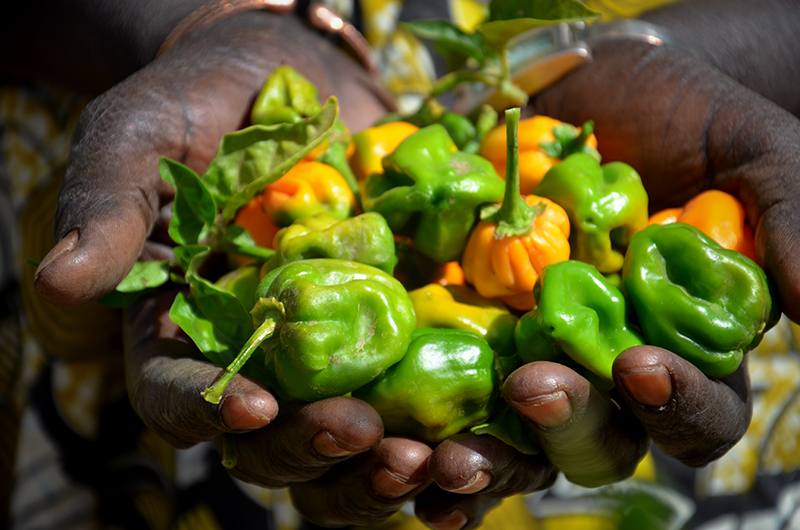The afternoon sun burns down on golden grasses, dry shrubs, and scattered baobab trees. Life slows down during the hottest time of the day here. Women pause their work in the community gardens to share cups of Café Touba and socialize in the cool shade. Although occasional clouds pass across the sky, communities in rural Senegal won’t see a drop of rain until late June when the rainy season starts again. However, even during the peak of the dry season, the community of Diabel continues to cultivate a lush community garden in the desert. They maintain a variety of crops that can handle the arid climate and are able to provide food security for their families and even their neighbors with dry season harvests.
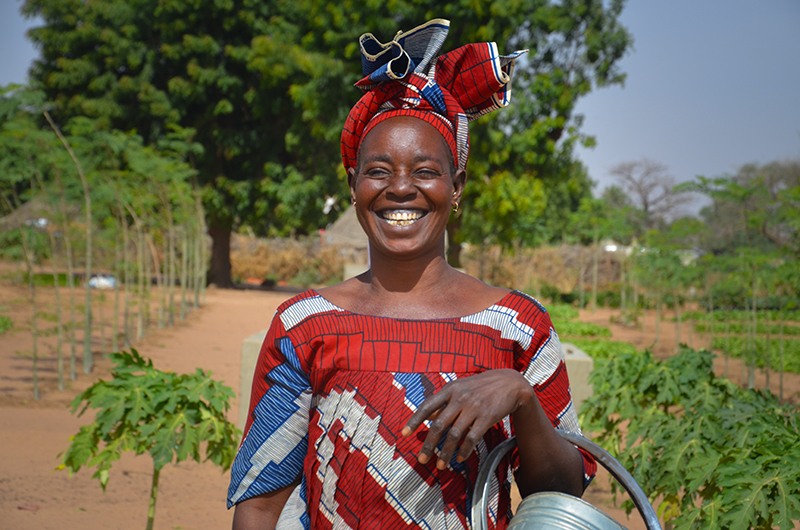
Meet Nogaye Dione, a hardworking mother of seven in the community of Diabel.
Ensuring Food and Financial Security
Nogaye Dione is a mother of seven in the community of Diabel. She’s been working hard to improve the livelihood of her family by maintaining a community garden with other women in Diabel. Just as the sun begins to peek over the horizon, bringing life back to the sleeping landscape, Nogaye joins other women in the village to work in Diabel’s community garden. “Since CREATE!‘s arrival, we have become closer because we always work in the site together,” she tells us. Nogaye recalls that before she began working in the garden, women in Diabel hardly ever saw each other. Usually, the dry season meant finding work in the more urban areas of Senegal and leaving families behind to support them. However, now that Diabel has abundant access to clean water and weekly agricultural training, people can develop food security and generate income from the village.
Before, Nogaye and other women traveled over 5 km on dusty rural roads to the city of Touba by foot, donkey cart, or the back of a motorcycle to buy vegetables from an expensive market. “We couldn’t go there frequently because it is far from the village,” she explains. The cost in distance and money meant that Nogaye’s children didn’t get to eat vegetables as much as she wanted them to. Now that Nogaye is growing her own produce, she tells us that she brings home a basket of fresh vegetables for her children every day. “My children like all the vegetables that I bring home because they didn’t have an opportunity to consume a big quantity before,” Nogaye tells us.
Not only is Nogaye and other women providing their families with fresh vegetables, but they are selling the extra in the markets and to neighboring communities. “There are people who come in our [garden] site to buy vegetables,” she describes. Often, while Nogaye and other women are tending to the community garden, people from neighboring villages will stop by the see the new harvest and purchase fresh produce for their families.
Below are some photo highlights from Diabel’s most recent harvest:
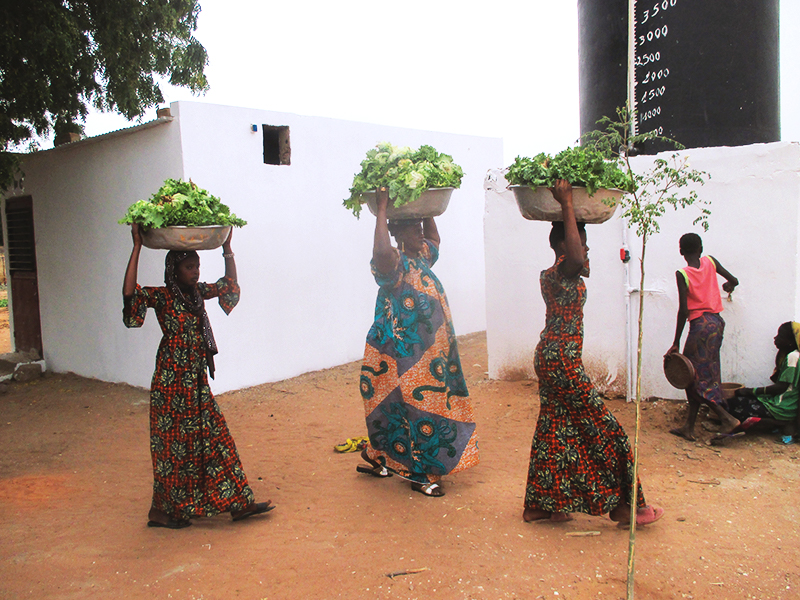
Community garden volunteers carry their fresh lettuce harvest back to the village for their families and to sell in the market.
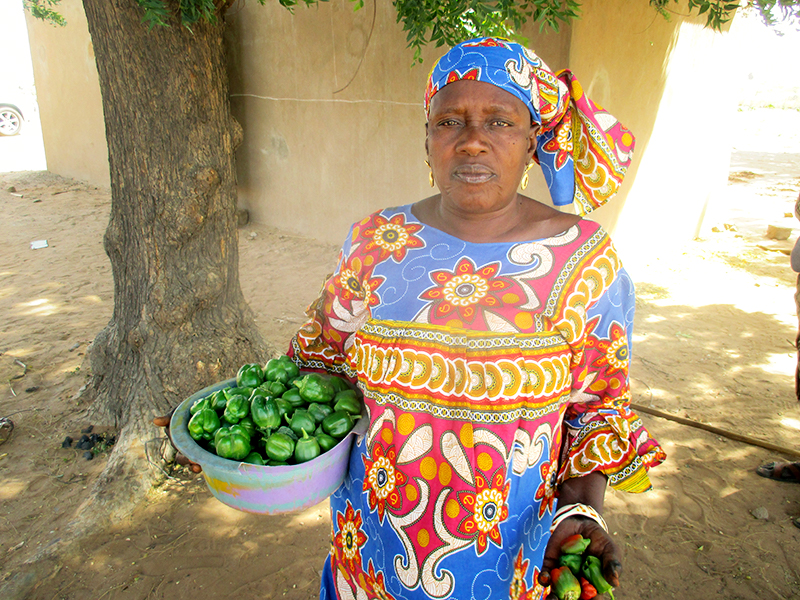
Diabel’s Community Garden President, Khady Ndiaye, and her recent pepper harvest. “I like vegetable gardening because it is an activity that can develop the community,” she tells us.
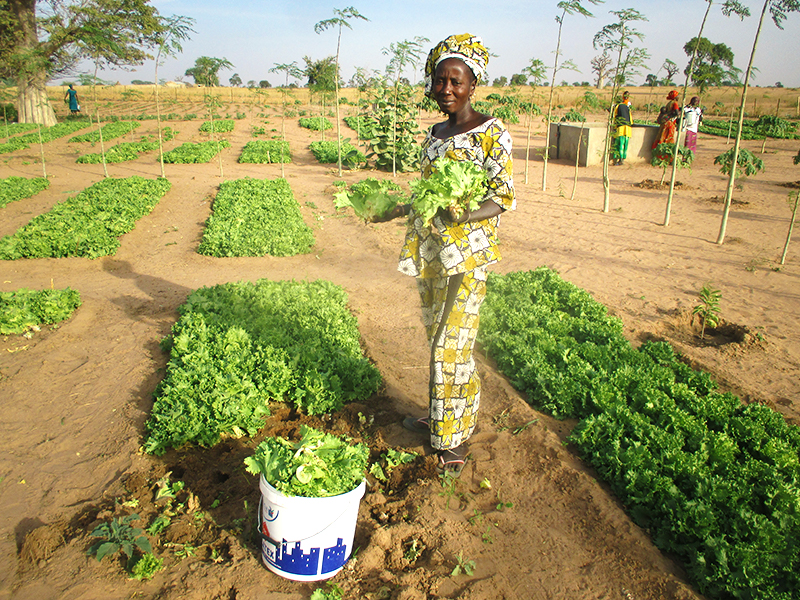
Awa Kane harvests fresh lettuce from the multiple beds in Diabel’s community garden.
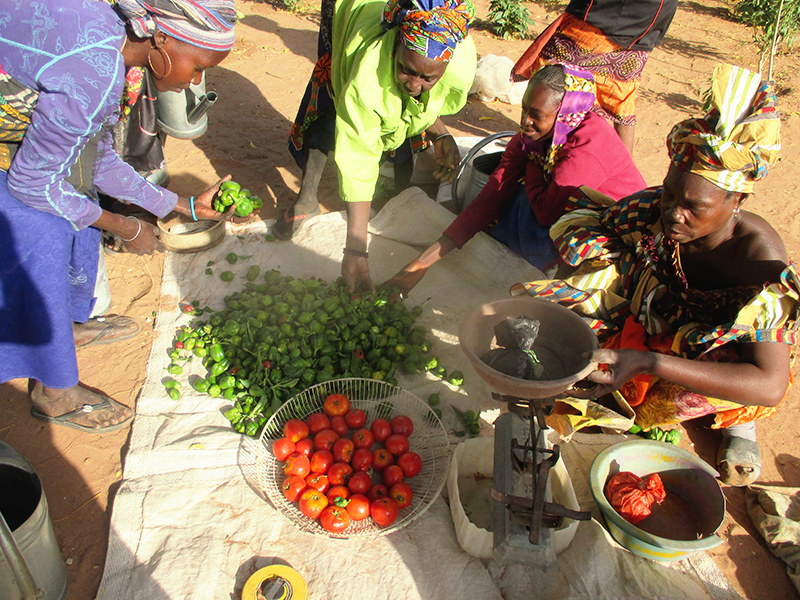
Community garden volunteers weigh and separate the vegetables before selling them in the weekly market.

